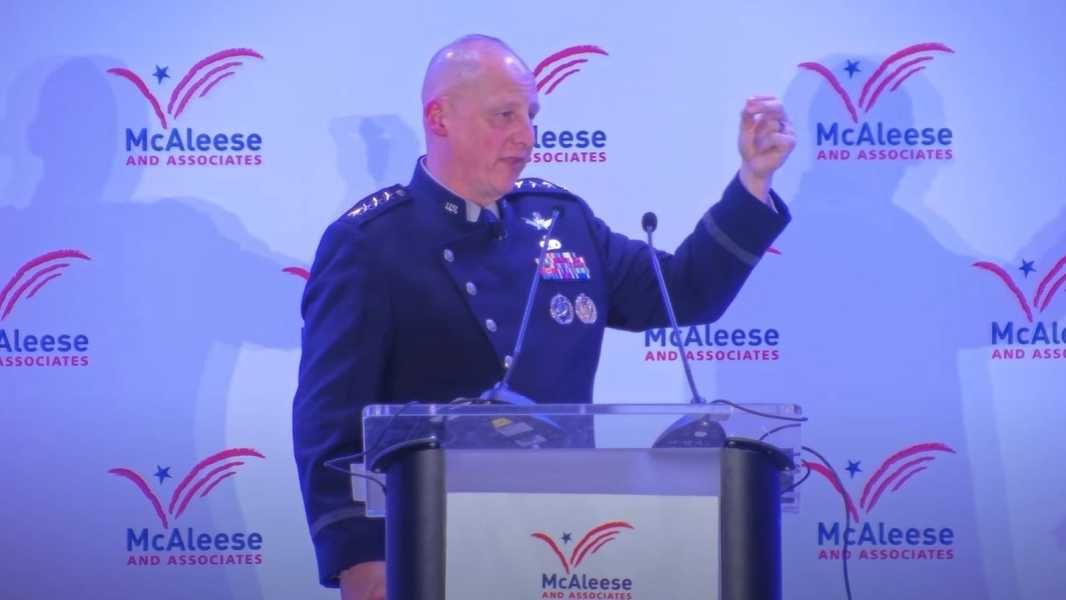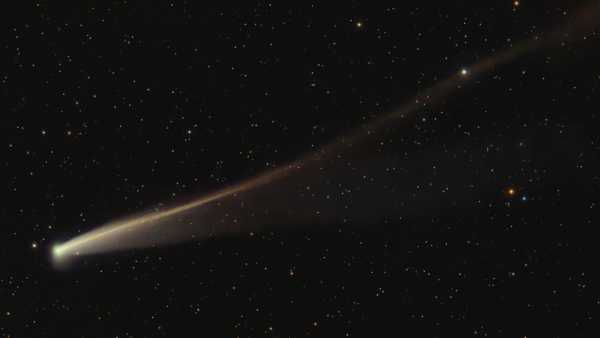
Deputy Chief of Space Operations Gen. Michael Getlein speaks at the 16th annual McAleese Defense Programs Conference in Arlington, Va., Tuesday, March 18. (Photo courtesy of McAleese and Associates)
A U.S. Space Corps general said the United States is on the brink of a major shift in space security and must step up its efforts before Russia and China close the gap in their capabilities.
Deputy Chief of Space Operations Gen. Michael Getlein spoke at the 16th annual McAleese Defense Programs conference in Arlington, Va., on Tuesday (March 18), warning that the Space Force needs to rethink its approach to protecting the nation's satellites. The Space Force must shift its focus from operating spacecraft to support ground-based defense infrastructure to developing its capabilities to match the orbital weapons being developed by adversaries, Getlein argued.
“We are in a transition from what was once a service focused on providing cutting-edge space services to the military and the nation,” Gen. Guetlein said, “to becoming a fighting force capable of defending and sustaining our capabilities both in space and beyond.”
For decades, space powers have largely avoided interfering with each other’s satellites and other spacecraft, but that era appears to be ending. The shift comes as China and Russia have been actively demonstrating their orbital warfare capabilities over the past few years. Some incidents have been more high-profile than others, such as Russia’s 2022 anti-satellite (ASAT) test, which created a cloud of supersonic debris in low Earth orbit. That same year, a Chinese satellite “captured” one of its own defunct satellites and towed it into a “graveyard orbit.”
“We are seeing grapplers in space that can tow another satellite or hold it hostage,” he warned. “We are also now starting to see our close allies focusing on training in space warfare with satellites,” he added, stressing that support for the Space Force would deter such aggression.
Getlein argues that old norms in space are beginning to break down. “Until recently, there was an unspoken agreement that we would not interfere with each other’s space systems,” Getlein said. “We didn’t jam them, we didn’t deceive them, we didn’t use lasers, we just looked after their safety,” he explained. “Unfortunately, our current adversaries are willing to violate international norms of behavior […] and they are willing to do so in a very unsafe and unprofessional way.”
Getlein also noted that the trend of “jamming, deceiving, and blinding” is becoming the norm, highlighting the tactic as a quick complement to the new operational environment in space. Now the stakes are higher. Foreign satellites have begun tracking American spacecraft, engaging in what Getlein described as a “cat-and-mouse game.”
The Space Force general added that as new technologies and orbital warfare capabilities emerge, it is critical that the U.S. maintains its edge. However, the once-significant technological advantage the U.S. enjoyed in space is diminishing. “That capability gap used to be huge,” Guetlein said. “That gap has narrowed significantly, and we need to rethink our approach to space or that gap could change and no longer be in our favor.”
China, in particular, is developing its intelligence, surveillance, and reconnaissance (ISR) capabilities. “China’s ISR capabilities are becoming very powerful. They have gone from what we used to call the ‘Kill Chain’ to the ‘Kill Mesh,’” he said, describing the integrated network that links ISR satellites to weapons systems.
McAleese 16th Annual Defense Programs Conference 2025 #DPC25 – General Mai
Sourse: www.livescience.com





